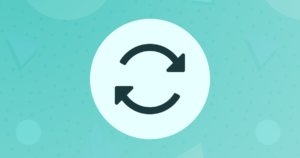A-Z Website Indexes Explained
A-Z Indexes are a far more accurate than search engines for searching the content of a Website or intranet. For the value they can bring to a site, A-Z indexes are worth the additional cost, but, if you decide to add an index to your site, it’s important to find the right person to do the job.
Key Takeaways
- A-Z Indexes are more accurate than search engines for searching the content of a website or intranet, providing a list of “entry point” topics that users can browse and select. They are created by humans, ensuring only relevant pages are indexed, and can be more effective than basic site search engines.
- A-Z Indexes offer numerous advantages including superior search accuracy, increased SEO rating due to the large number of well-labeled internal links, enhanced website usability due to the absence of irrelevant page retrieval, and the ability to keep users on the site longer as they can explore other topics.
- Creating an A-Z index is a straightforward task that can be completed by a freelance indexer, and depending on the size of the website, can cost between $200 and $1000. It’s crucial to find the right person for the job, as a poorly created index can lead to user frustration.
- A-Z Indexes need to be updated when pages are added or removed from the site, similar to site maps. In the case of frequently changing content, the index should be written to the general concept, not the specifics, to avoid frequent updates. If the index is created by a contracted indexer, an agreement on how the index will be maintained needs to be established.
How Alphabetical Indexes Work
An A-Z Index offers an alphabetical list of “entry point” topics through which the user may browse and select. In an index at the back of a book or manual, the entries are followed by page numbers. On a Website, the entry points are hyperlinked to the appropriate pages, and often to named anchors within Web pages for an even greater level of detail in indexing.
As with book indexes, a site index may contain multiple entries, each worded differently, that point to the same page, or page and anchor. This approach is used to cover all the different ways a user may think a topic is named, and is referred to as “double posting.” It covers synonyms, such as “cars” and “automobiles,” and the different word order of a phrase, such as “automobile engines” and “engines, automobile.” The browsable nature of the index solves the problems that might arise from incorrect or variant spellings, and singular vs. plural usages that the site user might choose.
In addition, there is often a second level of terms, called “sub-entries,” that are listed and indented under some of the main entries.
A Web A-Z index is typically a single, long HTML page, although it could be broken into separate pages for each letter of the alphabet if it were extremely long. At the top of the page, a horizontal list of the letters of the alphabet usually appears. The user makes a selection from this list, and jumps to the appropriate section of the alphabetical index.
A-Z indexes are created not by machines, but by humans who take care to add index entries only to pages on which good information about the topic appears. In this way, the indexing of topic words mentioned in passing or out of context is avoided, boosting the overall relevance and quality of the index itself..
A list of some examples of A-Z indexes can be found at A-Z Indexes on the Web: An Annotated Sampler from the Montague Institute Review.
Better Than Search!
Every now and then, we find an article or other document that says site indexes are a good thing. And every now and then we may come across an A-Z index on a Website, and think, “Hey, that’s cool.” So, why don’t we see more of them? The simplest answer is that the big competitor to A-Z indexes — site search engines — are usually cheaper (or may even be free) to implement. But, in the end, you get what you pay for.
Site search engines may not retrieve enough or any pages.
Whole-Web search engines usually produce “satisfactory” results in the quantity of pages, as users generally want “some information about” a subject, and this can typically be found on some of the numerous pages retrieved. If many good pages are missed by the search engine, the user usually does not notice or care, since enough other good pages are found.
Within a Website, however, the number of pages is relatively small, so a simple search engine search might not yield enough or any results, even if there are good pages on the subject. This is most likely to occur because the search subject the user enters is worded differently than references to that topic within page text.
Site search engines may retrieve too many irrelevant pages.
Whole-Web search engines usually produce “satisfactory” results in the quality of articles, since the major search engine companies have developed complicated criteria and algorithms for the retrieval and ranking of pages. Off-the-shelf search engines to be used within a site are not so sophisticated. They often retrieve pages that include a mere passing mention of the search term, but do not really focus on the subject at all.
Search engines often cannot meet the demands that searchers make on searches within a site.
Searchers of a site may want all the information a site has on a given topic, whereas searches of the entire Web only want — and expect — some information on a topic. Searches of a site may also want to find the information more quickly, since they might be looking at a number of sites simultaneously.
In the end, the quality of the search engine results reflects the sophistication of the search string entered by the user, which cannot be controlled. In the A-Z index, on the other hand, the quality of the results reflects the sophistication of the indexer, which can be controlled.
Additional Advantages to A-Z Indexes
In addition to the superior search accuracy, A-Z indexes offer other benefits.
- The large number of well-labeled internal links that make up an A-Z index increases the search engine optimization rating of the linked pages and, consequently, that of the entire site.
- The absence of irrelevant page retrieval makes an index more efficient, enhancing the usability of the Website.
- The ability to browse the index enables users to digress and explore other topics that catch their attention, keeping them on the site longer. In other words, indexes can enhance the “stickiness” of the site. Finally, A-Z indexes can be effectively implemented on Websites that are too small to work with site search engines, such as sites in the range of 20-50 pages.
No More Costly than Customized Search Engines
Of course, basic site search engines can be made more effective with tinkering. They can be customized to search only meta tags, and meta tags can then be carefully written for each page. Searches can be restricted to certain pages and/or zones within pages. Results can be tailored to display “key-words-in-context.” All this customization requires the expertise of Web developers, whose time is not cheap. And the improvement in the search engine’s capabilities can still never match those of a carefully crafted A-Z index.
Creating an A-Z index, on the other hand, is a straightforward editorial task that can be completed by a freelance indexer. Indexers can provide an accurate quote of the job before it begins, based on the average number of words per indexable page or the number of entries in the index. Depending on the size of the Website or intranet, you can expect an A-Z index to cost between $200 and a $1000.
Getting the Right Person for the Job
It’s very important that an A-Z index be done well. Although any alphabetical list might look good at first, if users cannot quickly find what they’re looking for, they will become frustrated with the index and the site itself. It would probably be better to have no index at all than a poorly created one.
Should you create the index yourself? Creating an index is more complicated than creating a hierarchy of categories or a taxonomy. To become competent at indexing really requires appropriate education. Information architects with backgrounds in library science and a good sense of labeling, however, could probably pick up indexing from reading a good book on the subject. In addition, a tool for automatically embedding the index URLs, such as HTML Indexer, which is my preference, is recommended.
So, where do you find a Website indexer? If you don’t want to invest the time and energy in learning indexing yourself, it’s probably best to contract a freelance indexer. Most of the professional associations of indexers listed below maintain searchable databases of freelance indexers. Limit your search to HTML or Web indexers. The nice thing about Website indexes is that samples of an indexer’s work are usually accessible online, so you can easily evaluate a potential indexer’s work.
Index Maintenance
It’s true that manually created A-Z indexes need to be updated when pages are added to or removed from the site, but so do site maps. If a Website is so large and dynamic that it is impractical to maintain a site map, then it would also be impractical to create and maintain an index. For pages that have frequently changing content, such as an announcements page, an index should be written not to the specifics of the content, but merely to the general concept of announcements, so that frequent updates in the index are not needed.
If the index is created by a contracted indexer, an agreement needs to be reached about how the index will be maintained. Either the indexer can be retained for future updates, or the indexer can provide written guidelines to the Webmaster on how to maintain the index. For example, after writing an index to a school’s Website, I identified the likely additional future pages and wrote up guidelines for the Webmaster to indicate the entries/subentries under which the new pages should likely be indexed. In this case, the new pages tended to be individual class pages, each of which would have been best indexed in three places: under the teacher’s last name, by grade level, and under the topic “classroom pages.”
Conclusions
A-Z indexes will enhance the searchability, usability, and overall quality of a Website with results that are superior to most site search engines. Just because a search engine is free, don’t be tempted to keep it on the site once you’ve added an index. Since they serve the same purpose, the presence of both a search engine and an A-Z index, yielding differing results, would only confuse users and waste their time.
Indexing Resources
Resources in indexing, including lists of courses and books in the basic indexing skills, are available through the professional indexing associations:
- American Society of Indexers
- Indexer Special Interest Group of the Society for Technical Communication (STC)
- Indexing and Abstracting Society of Canada
- Society of Indexers (U.K.)
- Australian Society of Indexers
Resources on Website indexing, which do not necessarily cover basic indexing skills, include:
- “Indexing Resources on the Web: WWW Indexing” — a compilation of links by the University of British Columbia School of Library, Archival, and Information Studies.
- “Web Indexing Tools: A Comparative Review” by Kevin Broccoli — From A to Z: the newsletter of the Indexing SIG of the Society for Technical Communication.
- “Special Topic Session: Indexing A to Z” of the Web Developers Group at Arizona State University.
- Broccoli Information Management online course in Website indexing (geared to students who already know how to index)
- Website for the book Website Indexing: Enhancing Access to Information within Websites, 2nd edition, by Glenda Browne and Jonathan Jermey, Auslib Press, 2004.
Frequently Asked Questions (FAQs) about Web Page Indexing
What is the importance of web page indexing for SEO?
Web page indexing is crucial for Search Engine Optimization (SEO) because it allows search engines to understand the content of your website and present it in relevant search results. When a web page is indexed, it’s added to the database of a search engine like Google. This means that the page can now appear in search results, increasing its visibility to potential visitors. Without indexing, your web pages would be invisible to search engines, significantly reducing your website’s traffic and visibility.
How can I check if my web page is indexed?
You can check if your web page is indexed by using the “site:” operator followed by your website URL in a Google search. For example, if your website is www.example.com, you would search for “site:www.example.com” in Google. The search results will show all the pages of your website that Google has indexed. Alternatively, you can use Google Search Console’s “URL Inspection” tool to check the indexing status of specific URLs.
How long does it take for a web page to be indexed?
The time it takes for a web page to be indexed can vary greatly. It depends on several factors, including the quality of the content, the site’s overall SEO, and the frequency of updates. Generally, it can take anywhere from a few days to a few weeks for a new web page to be indexed. However, Google and other search engines do not guarantee a specific timeline for indexing.
Why is my web page not being indexed?
There could be several reasons why your web page is not being indexed. It could be due to technical issues like a “noindex” tag in your page’s code, blocking of search engine bots, or slow loading times. It could also be due to poor quality content, lack of original content, or a penalty from Google for violating their guidelines. It’s important to diagnose and fix these issues to ensure your web page gets indexed.
How can I improve the indexing of my web pages?
There are several strategies to improve the indexing of your web pages. First, ensure your website has a sitemap and submit it to search engines. Second, improve your website’s SEO by optimizing your content with relevant keywords, improving your site’s loading speed, and ensuring it’s mobile-friendly. Third, regularly update your website with fresh, high-quality content. Lastly, build high-quality backlinks to your website to increase its authority and visibility to search engines.
What is the role of a sitemap in web page indexing?
A sitemap is a file that provides information about the pages, videos, and other files on your site, and the relationships between them. Search engines like Google read this file to more intelligently crawl your site. A sitemap can help search engines find pages on your site that they might not otherwise discover through their regular crawling process, thus improving the indexing of your web pages.
Can I control which of my web pages get indexed?
Yes, you can control which of your web pages get indexed by using the “robots.txt” file or the “noindex” meta tag. The “robots.txt” file tells search engines which pages or sections of your website they should not crawl, while the “noindex” meta tag tells them not to index a specific page. However, use these tools carefully as they can also prevent your web pages from appearing in search results if used incorrectly.
What is the difference between crawling and indexing?
Crawling and indexing are two distinct steps in the process of adding web pages to search results. Crawling is when search engine bots visit your website and follow the links on your pages. They do this to discover new pages and understand the content and structure of your website. Indexing, on the other hand, is when the information gathered during crawling is processed and added to the search engine’s database. Only after a page is indexed can it appear in search results.
How does mobile-first indexing affect my web pages?
Mobile-first indexing means that Google predominantly uses the mobile version of the content for indexing and ranking. Since the majority of users now access Google Search with a mobile device, Googlebot primarily crawls and indexes pages with the smartphone agent. If your site is not mobile-friendly, it could negatively impact your site’s ranking in Google Search results, which could lead to less traffic to your site.
How does Google handle duplicate content during indexing?
When Google detects duplicate content, such as identical content appearing on two different URLs, it tries to determine the original source or the most relevant version to display in search results. It does not penalize websites for having duplicate content, but it can lead to less efficient crawling and indexing as Googlebot may waste time crawling and indexing the duplicate content instead of discovering new pages.
Heather, principal of Hedden Information Management, is an information architect and indexer with a specialty in Web A-Z indexes. She previously worked on thesauri and taxonomies as senior vocabulary editor at the Gale Group.



